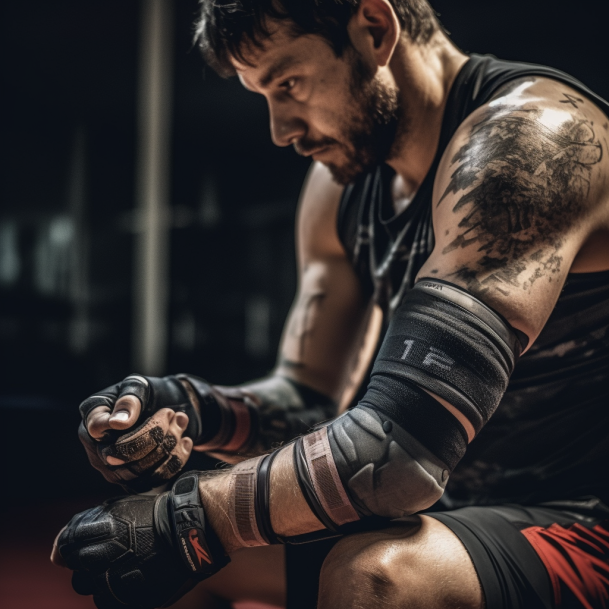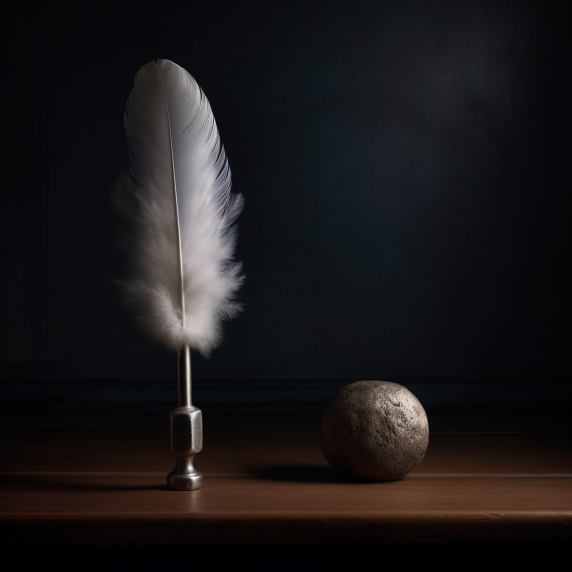Last Updated on November 20, 2025 by Drew Pierce
As with any paddle or racquet sport, players must consider the risk of developing pickleball injuries like tennis elbow. Given the importance of the paddle in this sport, many wonder, “Is a heavy or light pickleball paddle better for preventing tennis elbow?”
Understanding Tennis Elbow: What Is It and Why It Occurs?
Tennis elbow, or lateral epicondylitis, is a condition characterized by pain and tenderness on the outside of the elbow. It stems from overusing the forearm muscles and tendons, leading to minor tears in the tissue.
Prefer an audio summary of this post? Click below:
Given the repetitive arm and elbow motions in pickleball, players often encounter this condition. While numerous treatments exist, prevention remains crucial, underlining the significance of choosing the right paddle.

The Case for a Light Pickleball Paddle: Gentle on the Joints
Many players advocate for light pickleball paddles to lessen the strain on the elbow joint. Being easier to maneuver, light paddles can be swung with minimal force, consequently lowering injury risk.
Beyond the elbow joint, light paddles can ease the load on the shoulder and wrist. Their reduced weight allows for a more natural swing, minimizing strain on these joints. Hence, if you have a history of joint issues, a light paddle could be an ideal choice.
The Advantages of a Heavy Pickleball Paddle: More Power and Control
On the other side of the spectrum, heavy paddles also have their advocates. More stability, power, and control are some benefits heavy paddles bring to the court.
For those grappling with accuracy and control, a heavier paddle might be the answer. The additional weight can stabilize the paddle, giving you more control over the ball’s trajectory.
Therefore, if power and precision are your game’s cornerstone, a heavier paddle might be your ally.

Avoiding Tennis Elbow: Selecting the Perfect Paddle
Choosing between a heavy or light pickleball paddle essentially boils down to personal preference. While a light paddle may exert less strain on the elbow joint, it may lack the power some players seek. Conversely, a heavy paddle, while offering stability and power, could place more strain on the elbow.
When making your paddle choice, consider your playing style and any pre-existing conditions or injuries. A history of tennis elbow or other arm injuries might favor a lighter paddle. But if power and control are paramount to you, a heavier paddle may serve you better.
What Accessories Can Pickleball Players Use to Avoid Tennis Elbow?
There are several accessories that pickleball players can use to help prevent tennis elbow. Here are some worth considering:
- Elbow Brace or Strap: These devices work by applying pressure on the arm muscles, reducing the tension on the tendons that cause tennis elbow. They are designed to provide relief from pain and prevent further injury.
- Compression Sleeves: These sleeves increase blood flow and reduce inflammation in the elbow, which can help to prevent tennis elbow. They’re typically made from a stretchy material that fits snugly over the arm, providing support and warmth to the affected area.
- Pickleball Gloves: Gloves can improve your grip on the paddle, thereby reducing the strain on your forearm muscles. They also help to absorb some of the shock when hitting the ball, which can lessen the impact on your elbow joint.
- Paddle Grips: Choosing the right grip is essential for both comfort and prevention of injuries like tennis elbow. An ergonomically designed, cushioned grip can minimize the strain on your forearm and elbow by absorbing the shock from the ball.
- Wrist Strengthener: Regularly exercising your wrist with a wrist strengthener can also help prevent tennis elbow. These devices work by increasing the strength and flexibility of the muscles in your forearm, reducing the risk of overuse injuries.
- Proper Footwear: Shoes designed for court sports can improve your stability and balance, reducing the chance of awkward swings that can strain the elbow.

Remember, while these accessories can aid in avoiding tennis elbow, maintaining proper form and technique, along with appropriate rest, are crucial in avoiding conditions like tennis elbow. It’s always a good idea to consult a coach or physiotherapist for personalized advice based on your physical condition and playing style.
The Final Verdict: Is a Heavy or Light Pickleball Paddle Better for Tennis Elbow?
There’s no universal answer to whether a heavy or light pickleball paddle is superior for preventing tennis elbow. The lighter paddle, though gentle on the elbow joint, may compromise power and control. Conversely, a heavier paddle, while offering stability and power, might stress the elbow joint.
Your personal preference and playing style ultimately guide your choice. When choosing a paddle, prioritize your individual needs and any pre-existing conditions or injuries. By doing this, you’ll find the perfect paddle to optimize your performance on the court and protect your elbow and other joints from potential injury. Remember, the right gear is a vital aspect of enjoying and excelling at pickleball.

Thank you for a great read…I’ve written a blog post about choosing the best pickleball paddle for tennis elbow over at my website.